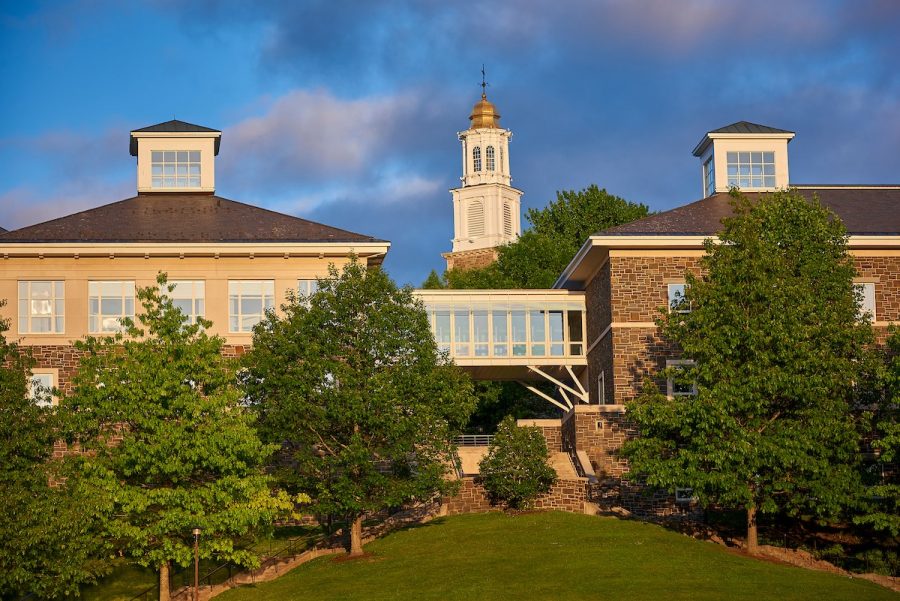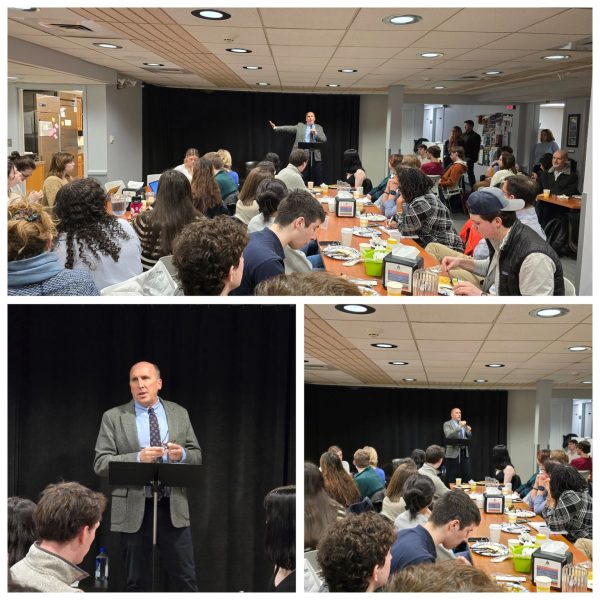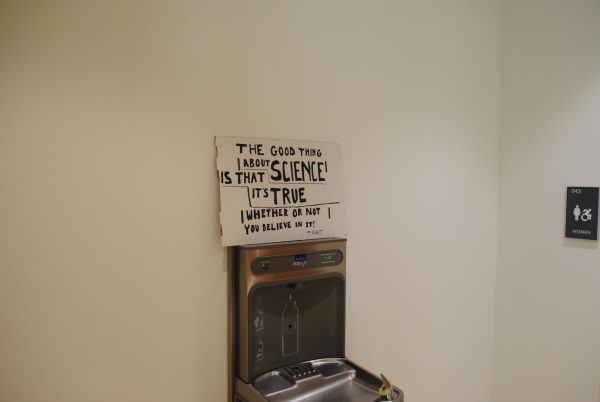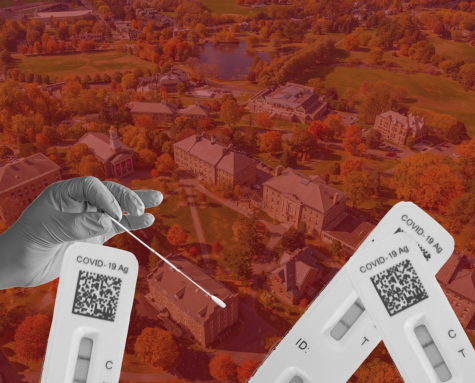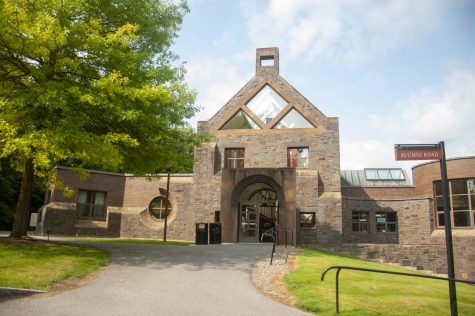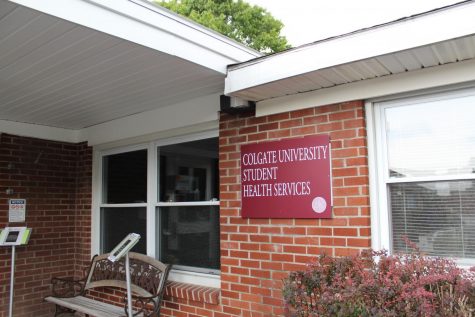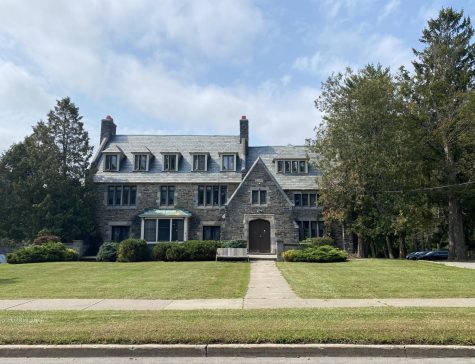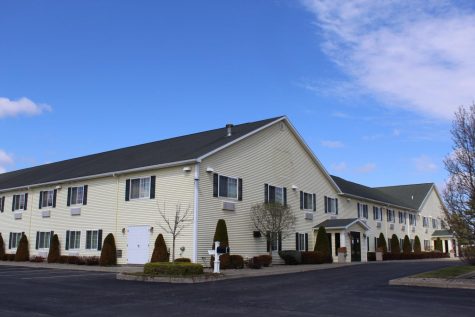Colgate Announces All Students Will Quarantine Upon Arrival, Other Move-In and Semester Logistics
Colgate announced details of a universal mandatory quarantine, move-in and arrival logistics for the fall semester on Wednesday morning, providing information on home testing kits prior to arrival, post-arrival testing, move-in windows and restrictions throughout the semester.
Most notably, all students will be required to quarantine in their campus residences for at least 14 days upon arrival to campus, through Sept. 8, during which all meals and any packages or mail will be delivered to individual residences. Upperclassmen not on meal plans living in campus housing will be charged for the three daily meals; seniors living off campus will not be delivered meals. Classes will begin as scheduled on Aug. 27 and take place remotely through the quarantine. While state guidance mandates visitors from over 30 states, D.C. and Puerto Rico to quarantine for 14 days upon arrival to New York, the University quarantine will apply universally.
First-year and incoming transfer students will arrive as planned on Sunday, Aug. 23, followed by upperclassmen on Aug. 24 and 25. Prior to arrival, students must select a two-hour move-in window on their respective arrival days to de-densify the move-in process. First-years and sophomores living on upper campus must unload their belongings on Whitnall Field and say goodbye to parents and family there. Staff will move belonging to Upper campus residences for move-in as families are not allowed on upper campus or in any residences during move-in.
Prior to arrival, all domestic students will be sent at-home COVID testing kits arriving around August 10 to be postmarked back by August 13. In lieu of the home testing, students can submit a negative test result from a PCR (polymerase chain reaction) COVID test from 7-10 day prior to their arrival on campus. Upon arrival, all students, including those living off campus, will be tested within 24 hours of arrival — first-year and transfer students will be tested on Aug. 24 and upperclassmen on Aug. 25 and 26. All students will be tested again 7-10 days after arrival.
International students may arrive earlier than these dates and coordinate their arrivals with the Office of International Student Services (OISS). Orientation links and community leaders (CLs) will arrive Aug. 22 prior to the arrival of first-year students, with all staff training taking place online, according to link staff member senior Abby Blair.
After initial testing, six percent of students, faculty and staff will be tested each week and all residence wastewater will be tested throughout the semester “to further identify whether we have largely eliminated the virus and to identify if further individual testing should be conducted.”
Any student who tests positive for COVID-19 will be placed in isolation with meals provided. They will be checked on regularly by state and University health officials. Those identified as close contacts to someone who’s tested positive will also be required to quarantine and will monitor any symptoms through daily surveys. Those quarantining for contact who live within five hours of campus must return home to do so within 48 hours, in order to reserve quarantine space for those who live further from campus.
“The number of isolation and contact quarantine spaces are finite. Approaching capacity in these spaces may necessitate the University to return to full remote learning and may require that all students leave campus and return home for the remainder of the semester,” the return to campus guide says.
Students living off campus are also required to quarantine upon arrival to Hamilton. Colgate will not deliver meals to students living off campus during the quarantine, but is exploring grocery and meal delivery from local businesses, according to the website. Throughout the semester, any students living off campus identified as a close contact to someone who has tested positive will be required to quarantine in their off-campus residence or at home.
Beyond quarantine and move-in logistics, the update also provided more details on what campus operations will look like following the quarantine. The guidance mandates mask-wearing and social distancing in all University spaces outside of one’s residence. Even in upperclassmen housing, including townhouses, apartments and broad street houses, the guidance requires students to distance and wear masks outside of their bedrooms in bathrooms, kitchens and other common spaces.
In an email to Colgate affiliates shortly after the guide’s release online, President Brian Casey and Vice President and Dean of the College Paul McLoughlin stressed the importance of the commitment to community health that all students must sign in order to return to campus. Calling the commitment’s requirements non-negotiable, the email outlined point-black that students in flagrant violation of the commitment will be sent home to take classes remotely.
“The health of every member of this community is at stake if these expectations are unmet. Disciplinary action for violation of this commitment will be, by necessity, swift in order to protect the campus and Village community,” Casey and McLoughlin said.
Among other restrictions clarified from the initial plan were personal car usage. As outlined previously, students will not be allowed to use cars on campus and must park them in satellite parking. However, upperclassmen living in apartments, townhouses and fraternity and sorority houses can park in those lots. Students may only use personal cars to access local businesses and in the case of emergencies during the semester.
The plans provided more details on academic and student life following the initial quarantine. Class schedules now include 20 minutes between classes and the addition of evening classes, outdoor classrooms and mostly virtual office hours. Dining spaces will include expanded grab-and-go selections and mobile ordering options, with socially distanced eating spaces set up in spaces around campus including the Edge Cafe, the Ho Atrium and in outdoor spaces. Donnovan’s Pub will now be open for lunch during the week.
The guidance outlines an approval process through Colgate’s event management system (EMS) room scheduling platform for all in-person events on campus. All events over 10 people must be scheduled through EMS by a staff member a week in advance “if and when in-person meetings and events of 10 or more people may resume.”
Any in-person student organization meetings or events must also be approved by the Center for Leadership and Student Involvement (CLSI) and follow guidance on attendance, distancing and PPE. The guidance prohibits all social hosting and parties, on campus and off.
“No social hosting, parties, or off-campus social events will be permitted for the fall semester. Violations of this policy will be considered a flagrant violation of the Commitment to Community Health and will lead to serious implications for the sponsoring organization and individual students, as applicable.”
The new details about the fall reaffirms Colgate’s plan to bring all students back in August, even as COVID-19 cases spike across the country. Over recent weeks, many institutions have reversed their plans to bring students to campus, including schools in the South and on the West Coast, as well as Lafayette College and Dickinson College, both in Eastern Pennsylvania. Others, including much of the Ivy League, planned only to bring back a limited number of students. Most of Colgate’s fellow Upstate New York colleges, however, still plan to bring most students back for the fall, including Syracuse, Cornell and Hamilton.

Kirby Goodman is a senior from Minneapolis, Minnesota concentrating in peace and conflict studies with a minor in political science. She's previously served as...


